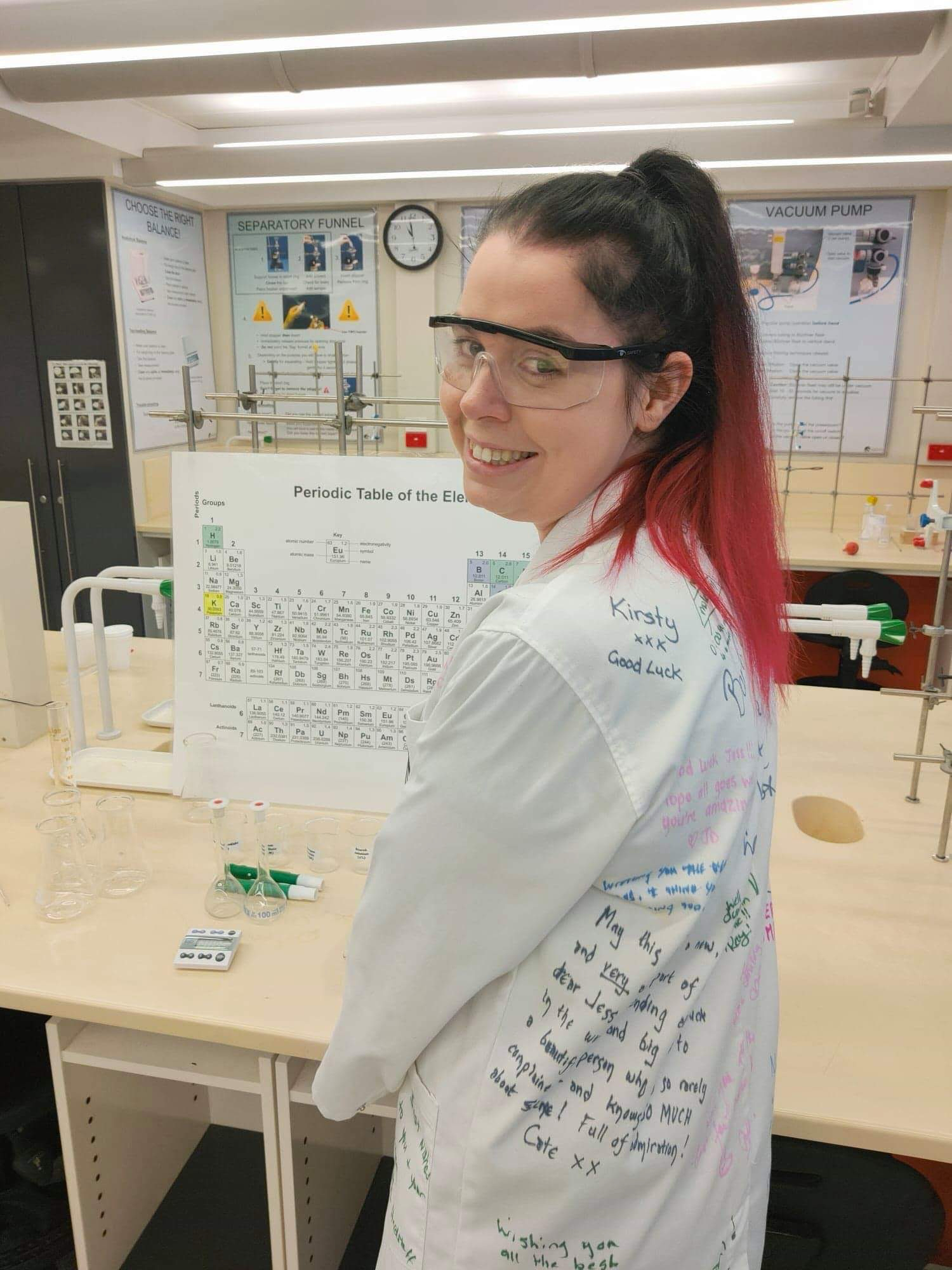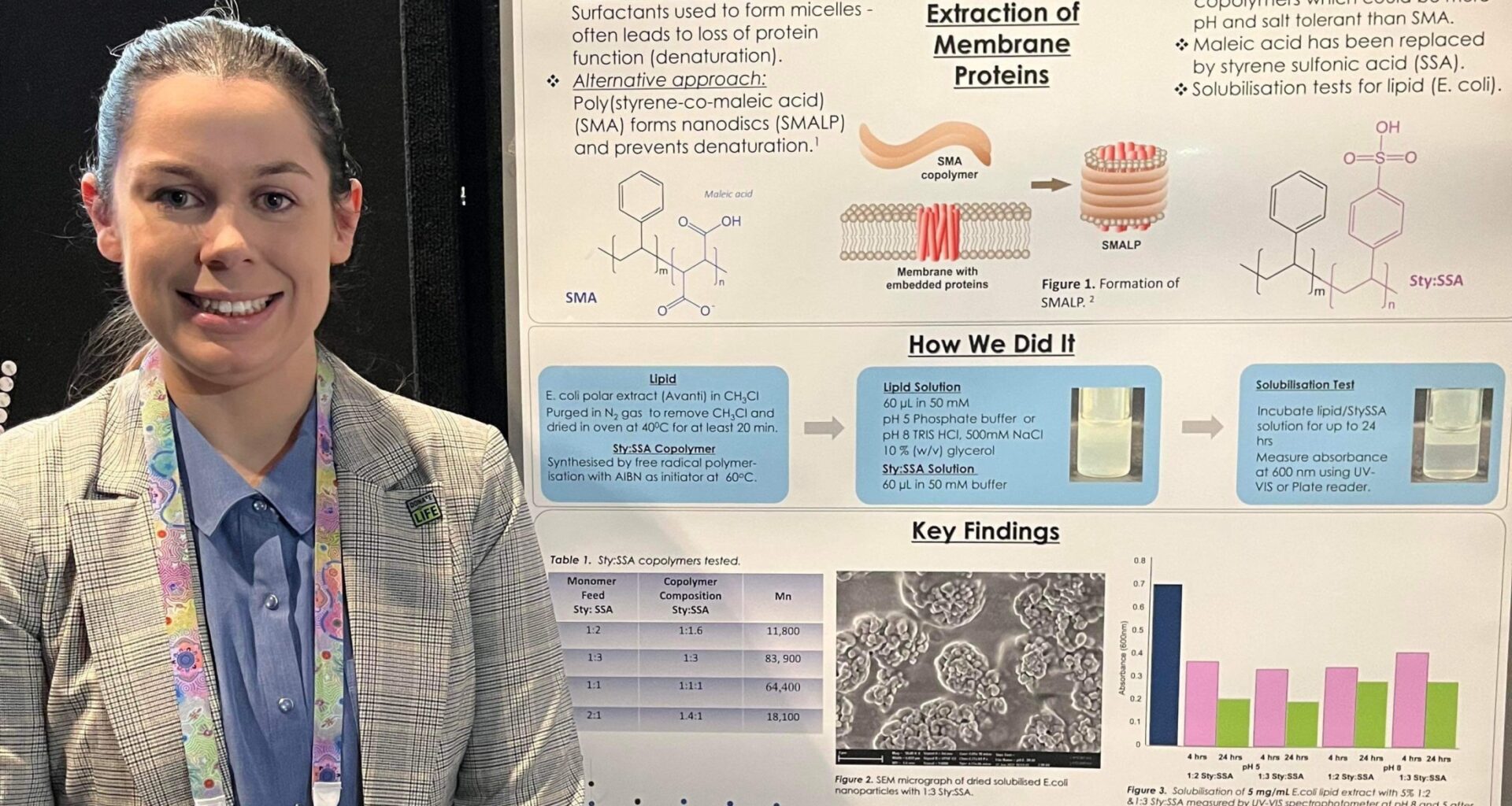At just 23, Jessica McCourt was diagnosed with stage 4 chronic kidney disease, with the young mum’s health dwindling fast.
Now, she’s in her final semester of a Bachelor of Science (Advanced) at the University of Newcastle (UoN), inspired by the very experience which kept her in the transplant ward.
In 2015, Jessica lived an ordinary life, raising her young son Riley in Newcastle.
“He was four years old and had so much energy, zooming around the place all the time,” she told the Newcastle Weekly.
“I decided I wanted to go on a health kick to keep up with this kid and it just so happened that I broke out in a full body rash.
“I thought it was an allergic reaction, so I went to the GP and had a blood test.
“They told me that my kidney function was at 20%.”
After seeing a specialist and extensive testing, Jessica was diagnosed with IgA nephropathy – an autoimmune condition which specifically attacks kidneys – and told she needed to get a transplant within a year.
“You don’t expect for that to happen at 23 years old,” she said.
“I definitely had to process what was going to happen and what my life was going to look like.”
Fortunately, Jessica was able to delay her procedure until late 2018, after 12 months of trials and testing in the hopes of finding a suitable donor.
Prior to her transplant, she enrolled in an introductory course at the UoN, with the goal of studying immunology.
“I was quite unwell at the time, I was sleeping a lot, even just going to uni for a three-hour lecture was really challenging,” she explained.
“So, it was definitely a pretty big rollercoaster.”
Despite her deteriorating health, Jessica took solace in her studies, hoping to one day help someone like her.
“There was always a lab report due the next week, so it gave me that structure and stability,” she said.
“It definitely helped doing chemistry and human body sciences because I would be in a lecture and I’d be learning something that would relate to what was actually happening with my body.”
According to Jessica, one of the biggest struggles she dealt with was the assumption that youth equated to good health.
“I felt like I was living a secret double life,” she explained.
“You don’t really expect the person that you’re sitting next to in the lecture theatre to be waiting for an organ transplant when they’re in their 20s.”
Now in her sixth year of tertiary study, Jessica is about to graduate with her undergraduate degree, with plans to continue her studies in 2026.
“I think it’s incredible having that lived experience,” she said.
“It’s such an underrated thing, especially in science because you have both the understanding as the patient and that science knowledge as well.
“I think it’s a really powerful combination.”
 Jessica wears a lab coat signed by her transplant team, nurses, lecturers, and friends, a powerful symbol of the connection between science, survival, and second chances. Photo supplied
Jessica wears a lab coat signed by her transplant team, nurses, lecturers, and friends, a powerful symbol of the connection between science, survival, and second chances. Photo supplied
Jessica said she would begin her honours research of biomedical science in transplant immunology with the Hunter Transplant Research Foundation.
“It’s out of this world,” she added.
“I can’t explain how much this means to me to be able to do something like that.”
But, sadly, her story is one of many.
Currently, 1,800 Australians are still waiting for a life-saving transplant, as Jessica emphasised the importance of organ donation.
“It is a taboo topic and it’s really challenging to have that conversation,” she said.
“But, just knowing that you could be the reason to give someone a second chance at life is incredible.
“As recipients, donors are always at the back of our minds.
“We constantly think of them… and they are so important to us.”
Get all the latest Newcastle news, sport, real estate, entertainment, lifestyle and more delivered straight to your inbox with the Newcastle Weekly Daily Newsletter. Sign up here.

